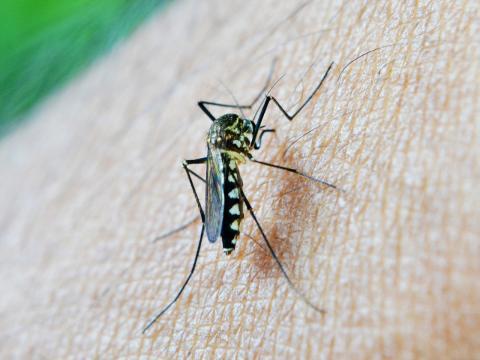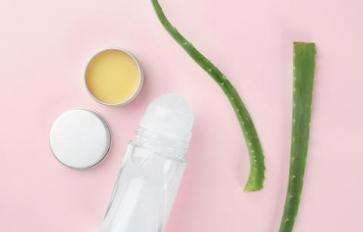
Spring is officially here, and as the days get warmer, the bugs come out. Sure, we know that some insects are useful – they provide food for birds and help pollinate plants, for example. But as the recent fears over Zika virus have shown us, the increased presence of mosquitos can threaten our health, in addition to being an annoyance.
Luckily, there are plenty of options for natural mosquito repellents you can use to protect yourself.
1. Citronella Candles. Citronella is a natural oil found in lemon-scented plants that is often made into candles to be used for mosquito repellent. When burning, citronella candles can reduce mosquito bites by up to 42 percent, according to research by Guy Surgeoner at the University of Guelph.
2. Natural Oils. There are many natural oils that can be diluted and applied to repel mosquitoes. Choose a natural oil (or two or three), choose a carrier for dilution, and start mixing! Note: These natural oils can be harmful in high concentrations, so always make sure to dilute the oil with lotion, water, liquid Castile soap, or another carrier. It’s also a good idea to do a small spot test to make sure you’re not allergic before applying liberally to bare skin. And, as always, use caution and care when applying to young children, who may have especially sensitive skin.
Oils:
Oil of Lemon Eucalyptus. A mixture of 32 percent lemon eucalyptus oil can provide more than 95 percent protection against mosquitoes for three hours! Note: make sure to get the insect repellent version and not “pure” essential oil. Avoid using on children under three years old.
Cinnamon Oil. Cinnamon oil can kill mosquito eggs as well as repel adult mosquitoes.
Thyme Oil. One study shows hairless mice who had 5 percent thyme oil applied to the skin experienced a 91 percent protection rate.
Greek Catnip Oil. Catnip oil can repel mosquitoes for two to three hours, and may be more effective than DEET at repelling mosquitoes!
Lavender Oil. In addition to preventing mosquito bites, lavender has analgesic and antiseptic properties. If you have lavender growing in your garden, you can crush the flowers and apply the oil directly to your skin. Note: Lavender is not as harsh on sensitive skin.
Soybean Oil. This is a common ingredient in many natural mosquito repellent products.
Carriers:
Vegetable Oil. 10-25 drops of essential oils combined with 2 tablespoons of vegetable oil.
Water. 10-25 drops of essential oils combined with a quarter cup of water.
Apple Cider Vinegar. 10-25 drops of essential oils combined with a quarter cup of apple cider vinegar.
Witch Hazel. One part essential oil to ten parts witch hazel.
Sunflower Oil. One part essential oil to ten parts sunflower oil.
Liquid Castile Soap.
3. Clothing and Attire. If you’ll be somewhere with lots of mosquitoes, you may want to consider wearing special mosquito-net shirts, hoods, or pants, which can offer additional protection. Even if you’re not going into a heavily infested area, you might consider wearing loose-fitting clothing, which is harder for the mosquitoes to bite you through, and avoiding soaps, shampoos, and perfumes that are strongly scented, which attract bugs.
Of course, there are other good strategies for mosquito management that can be used in conjunction with these options – eliminating breeding places (even small amounts of stagnant water can attract mosquitoes) and keeping and protecting natural mosquito predators such as chickens, ducks, dragonflies, ants, spiders, frogs, and snails can also help.
Having said all of this, the Environmental Protection Agency says mosquito repellents containing DEET are safe for adults and children over 2 months old (10% or less for children, 35% or less for adults), so if you’re going to an area with significant mosquito problems, weigh the risks of mosquito-borne illnesses and use your own judgment about what’s best for you and your family.








